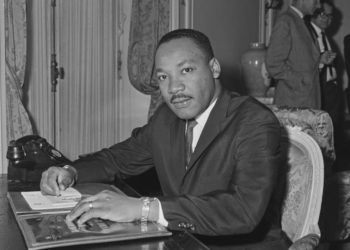Once again, America must confront a fundamental question: Will we protect the right to vote for every American, or allow the Voting Rights Act to be weakened beyond recognition?
This week, the Supreme Court revisited that question in Louisiana v. Callais; a case that could gut the Voting Rights Act and make it harder for millions of Americans to be fairly represented.
Every election cycle, we see how fragile access to the ballot can be. Voter Participation Center research from 2024 shows that participation among underrepresented voters is slipping—not because they’ve stopped caring, but because states keep putting up new barriers to vote.
In 2022, voter turnout among people of color, young people, and unmarried women trailed older white voters by 22%. This gap persisted in 2024 when Black voter turnout fell by nearly 240,000 votes. Unmarried women cast 723,000 fewer votes than in 2020. Together, these groups and young voters cast over one million fewer ballots even as turnout among other voters rose by nearly 800,000.
These citizens are not apathetic. They are teachers, caregivers, students, and first-time voters running into obstacles that make participating increasingly difficult: registration systems that don’t keep up when they move, deadlines that conflict with work or family schedules, polling places that are under-resourced or inaccessible, and districts drawn to dilute their voices. Each barrier sends the same message that voting is for some, not for all.
Now the Supreme Court is weighing whether to remove one of the few tools left to fight those barriers.
The case of Louisiana v. Callais challenges a congressional map the state adopted last year to comply with the Voting Rights Act by creating two majority-Black districts out of six. A group of white voters has sued, claiming those districts discriminate against them. A ruling in their favor would gut Section 2; the last remaining shield against racial discrimination in voting.
For over a decade, Section 2 has been the foundation of voting-rights enforcement. Weakening it would make it nearly impossible to challenge racially gerrymandered maps or unfair voting systems anywhere in the country.
The consequences would reach far beyond Louisiana. A report by Fair Fight Action and the Black Voters Matter Fund warns that overturning Section 2 could reduce representation for communities of color across the South. The report warns that the Congressional Black Caucus could shrink by almost one-third and the Hispanic Caucus by about 10%.
None of this is an accident. These are deliberate policy choices. States have also cut back mail-in and early voting, eliminated same-day registration, and even targeted the nonpartisan groups that help people navigate a maze of rules that change from state to state—even though these voting options have historically increased access to the ballot and made it easier for millions of eligible Americans to participate in our democracy.
The consequences of this voter suppression go beyond who shows up on Election Day. When participation drops among people of color and young people, our electorate becomes less representative—and our government does too. The result is a political system increasingly skewed toward the interests of older, whiter voters, which in turn drives policies that do not reflect the needs of all Americans. And when the needs of the most marginalized communities are ignored, everyone loses. The cycle then repeats: fewer voters, less representative democracy, and a further erosion of trust in the institutions which govern us.
As we head into the 2026 midterm elections, it’s important to remember that we are not powerless to change course. The same underrepresented voters that continue to be left out of the process have the numbers and the power to impact governing in America, if they are given a fair opportunity. But it will require treating voter access and participation as a national priority rather than an afterthought, or an electoral liability.
We are on the verge of becoming a country where the right to vote exists only on paper. America must be a democracy where free and fair elections are cherished and a representative electorate is valued.
Voting is not a privilege for states to restrict or manipulate. It is a fundamental civil right and one worth protecting.
The post The Right to Vote Is on Trial at the Supreme Court appeared first on TIME.




